Great Places to Ride: Nebraska Sandhills
It's not all corn and wheat fields after all. Who knew?
Nebraska probably isn’t the first place you think about when it’s time for a nice motorcycle ride. Maybe that’s what makes it such a cool destination: Neither does anybody else.
It’s a state you drive through on your way to someplace else, really, which is the way it’s been since the Oregon Trail followed the North Platte River out toward the west coast, followed by the transcontinental railroad, followed by just about everybody and everything in North America not content to stay in one place. A few people who realized a good thing when they were in it stayed, but not many; Wiki says Nebraska ranks 43rd in population density.
I always assumed the entire state is one big – no, two big fields – one wheat and one corn. What I discovered is that fully a fourth of the state is ancient sand dunes covered with a light covering of prairie grass, most of which has never seen a plow. In fact, most of northwest Nebraska is a vast, rolling Sahara that happens to sit atop the Ogallala Aquifer – which makes it a grass-covered Sahara pockmarked with lakes and marshes and birds. And cows. It’s also semi-arid, not much humidity.
Add those up and what have you got? A beautiful, depopulated place with open sightlines where you can open up your Hayabusa during the day and get a really good steak at night. I was lucky enough to get to spend a week there recently, cruising around on a borrowed Victory Cross Country Tour.
Union Pacific Railroad, Bailey Yard, North Platte
As a bona fide train nut, I would go to Nebraska for this alone. At the world’s biggest train yard – 8 miles long with 985 switches – trains are banging around 24/7 (in fact, full automation assures no cars hit faster than 2.5 mph), and you can go to the top of the eight-story Golden Spike Tower to take it all in. Crews are sorting 10,000 railroad cars a day (which is not quite as impressive as it seems when you find out 70 “unit trains” a day are hauling 130 cars of coal each; good luck with lowering those emissions anytime soon). The diesel shop repairs 750 locomotives a month, which swill 14 million gallons of diesel in the same time frame. It all started when the Union Pacific took a short break here in 1876 and built a small repair facility.
The history of most of the U.S. – the parts worth inhabiting anyway – is really the history of the railroad, and the UP lays out quite a bit of it here, including the “orphan trains” which brought children from New York, including the Titanic survivors, out west to live wholesome farm lives. Or serve as free child labor. Possibly as many as 200,000 were imported from 1850 to 1930, the beginning of American foster care.
Lincoln County Historical Museum, North Platte
There probably is an inverse relationship between population density and niceness. When the families and friends of the local National Guard unit came to the train station to give their boys Christmas gifts on December 17, 1941, and found a company of unknown Kansas soldiers on the train instead, they went ahead and gave the Kansas boys the gifts anyway. Then they continued greeting and feeding every troop train to come through North Platte for the next five years, organizing volunteers from all over the state to serve more than 6 million troops before it was over – regardless of race, color or creed.
Buffalo Bill Ranch State Historical Park, North Platte
William F. Cody started working at eleven years old, as an ox team driver, and by the time he died broke in 1917 at his sister’s house in Denver, he’d been a fur trapper, U.S. Army scout, Pony Express rider, gold miner, buffalo hunter, 20 other things, and a famous showman whose Buffalo Bill’s Wild West Show toured the U.S. and Europe. When he was flush (and he was very flush indeed), BB built his dream home, Scout’s Rest Ranch, in North Platte – the Neverland Ranch of the 19th century. It’s now beautifully restored on 233 acres, complete with barn and stream-fed swimming hole out back.
Tubbing on the Middle Loup
That huge Ogallala Aquifer bubbles a steady supply of pure glacier water up into the Loup River system, making the whole area a great spring-fed place to canoe, or in this case, “tub.” The Mullen locals SandhillsMotel.com (and canoe rental) had the bright idea of packing everybody into stock tanks for a nice leisurely float down the Middle Loup. These sturdy craft are unsinkable, almost unsnaggable with their shallow draft – and able to hold plenty of people and coolers. Alternatively, you can put in at the wider, deeper Niobrara up in Valentine at GrahamOutfitters.com, and check out the Valentine National Wildlife Refuge while you’re there. Floating down a river might be the next best thing to riding your motorcycle.
Cody
Blink on your Hayabusa and you will miss Cody, population 154, hard up against the South Dakota border on Highway 20 just west of Valentine. Unlike in the fun yet ridiculous Bruce Dern movie I just watched named Nebraska, there are a lot of sharp, well-travelled people in these little towns who just plain like it here. Stop for a bit and visit the Sandhills Boot Company, where Kyle Rosfeld makes custom boots and other leather goods on a Singer machine made in 1876.
Great Vinegar
Meanwhile down the street, some might’ve taken offense when their daughter’s boyfriend from California said “your wine would make great vinegar.” But not George Johnson, who did a bit of research, and whose delicious handcrafted George Paul vinegars are now sought out by fine restaurants all over the country. The stuff is amazingly good.
Beaver Rules
Might as well get a really nice hat to go with your new boots at the Bar None Hat Company in Thedford. Kaycee Orr-Hoffman makes some stupendous headgear.
Wine!
I can’t pass up an out-of-the-way winery, and they don’t get much more out of the way than the Niobrara Valley Vineyard – in fact it was only with the help of Baby Jesus that I got in and out of the dirt (mud) road through the cow pasture without tumping the Victory over again. Greg and Tim Nollette started out supplying grapes for George Johnson’s vinegar operation, but then George talked them into making wine too, which is a good thing as it has weaned them off the hard stuff. “They said you couldn’t grow grapes here,” says Greg, “so we decided that’s what we’d do.” The brothers’ French/American hybrid grapevines are good to 40 below zero. I like the Boss Cow white, winner of some silver medals somewhere …
Perfect 10 Bison Ranch
David Hutchinson raises organic cattle and goats on his 5000 acres, too, but his heart is with the bison – the original inhabitants of this endless rolling grassland. The cows the white man brought in to replace the bison as the main food source require lots more care. When the snow gets deep, the bison will use his big head to punch through and eat the grass underneath, and to punch through the ice and drink, while the cow needs hay, dries out and keels over. The bison gather themselves into a ring to repel wolves, with the babies in the middle; cows just stand there and get eaten. The list goes on; one species has been here forever, the other was imported not so long ago. So why did we nearly kill off the bison anyway? Mr. Hutchinson simply passes on what the Cherokee told him: “White man big stupid.”
It’s hard to argue with that, but I think we’re just spoiled and cows taste a little better. I ate some nice ones in Nebraska, but can’t remember ever having a really good bison steak. Do your own investigating here. Anyway, the ranch is a lovely peaceful place to stop if you’re in the area, complete with a bed and breakfast operation, but beware the dirt road in has a few sections of deep sand.
Bowring Ranch State Historical Park
Eva Kellie Forrester was a traveling saleswoman for a bakery when her car broke down and Henry Bowring came to her rescue. They wound up married 10 years later, Henry wound up dying, and Eva wound up not only running the ranch but also becoming Nebraska’s first woman U.S. senator, in 1954. In DC, she hobnobbed with and framed pictures of all sorts of people including JFK, Ike, Harry S. Truman, Haile Selassie – and SAC Commander General Curtis LeMay, inspiration for General Jack D. Ripper in Dr. Strangelove.
The ranch house at the Bar 99 is just as she left it at her death in 1985, a fun political and domestic trip back into the mid-20th century, as the many framed heads of state juxtapose Sen. Bowring’s pink bathroom and ceramic chicken collection. Though the 7500-acre ranch now belongs to the state, it still raises tasty Herefords. I also saw a pair of young antelope on the dirt road on the way out.
Dancing Leaf Cultural Center
Wow. Les Hosick at the Dancing Leaf Cultural Center claims to be a high-school drop-out but gives what sounds like doctoral-quality information about the ancestors of the Pawnee who lived along Medicine Creek thousands of years ago. Peaceful farming for hundreds (maybe thousands) of years got them no headlines. Not until European explorers arrived later with horses did these natives become nomadic, and not too much longer after that, angry and combative – much like the trajectory of the typical marriage.
Les and his wife Jan have built an earth lodge like the ones those people lived in years ago in the hills above the creek, and it’s just the thing for you adventure-bike types to stay in for a nominal fee. Paddle canoes in his pond, explore 115 acres of cedar-covered canyons, etc. The most interesting part might be all the fossils that get dug up in Medicine Creek, repository of nearly all the mastodons found in museums around the world. Nebraska was on the edge of a huge glacier at the end of the last Ice Age, and was home to camels, shovel-tusk mastodons and all sorts of creatures.
Fort Cody Trading Post
Just off I-80 in North Platte, this self-described tourist trap is actually a lot of fun – packed with all the cheesy gifts you need to bring back, but worth a visit mostly for the working diorama/model of the Buffalo Bill Wild West Show that takes up a whole corner of the store.
Gothenburg
Your quintessential small Swede-settled Nebraska town from the 1880s, Gothenburg has an original Pony Express station transplanted into the town park, a cool old downtown and a museum packed with things like tonsil snares. I can’t get enough stuff like that. You?
I’ve got more, but that’s probably enough for now. What I mostly remember is rocking along on the Cross Country Tour around Valentine, tuning into the local 96.1 FM, which I think was coming from the big reservation just across the border in South Dakota. First, Three Dog Night played Never Been to Spain, followed by The Platters’ Life Could be a Dream, followed by some completely wacky tribal wailing unlike anything I have ever heard before – a quick trip from the ’70s to the ’50s to ancient times in 10 minutes.
They’ve been separating wheat from chaff for a long time up in here, there’s no constant chatter to distract people from what works and what’s crap. A guy I was talking to in Valentine while we were eating cows in the Peppermill told me how when we were kids and everybody had big families, lots of locals had no choice but to run off to the big city. Now, people have one or two kids – just enough to replenish the population. And now that everybody’s been to the big city, they appreciate what they’ve got here even more.
Wide-open spaces. The Sandhills isn’t only a nice place to visit, it wouldn’t be a bad place to live. Oh, I saw zero traffic officers. Fire up the Hayabusa.



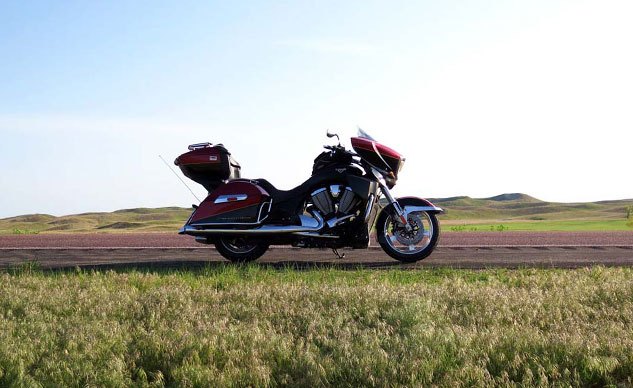
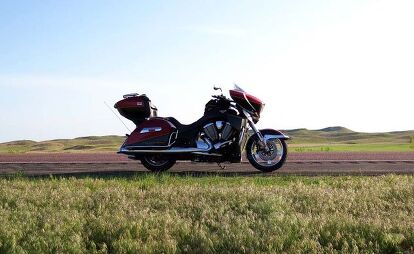


















































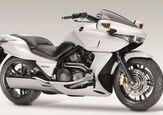

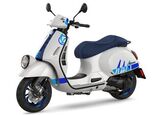

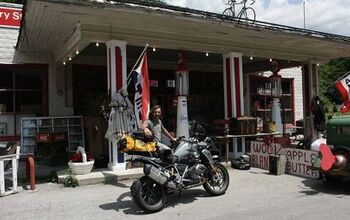
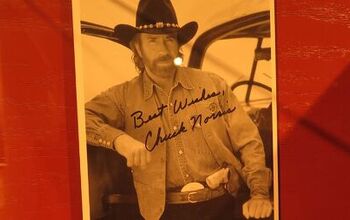
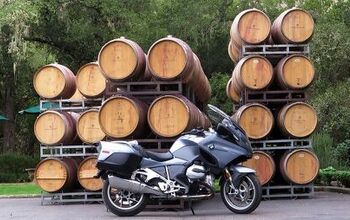
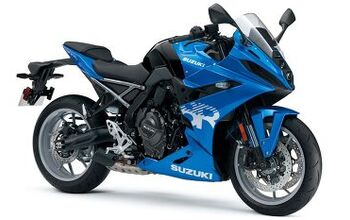

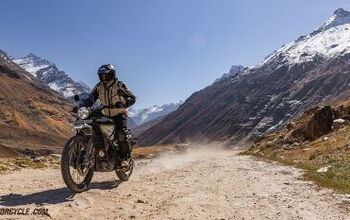


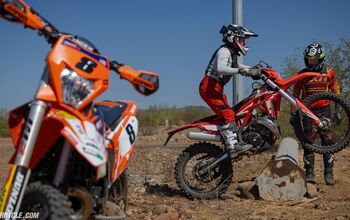

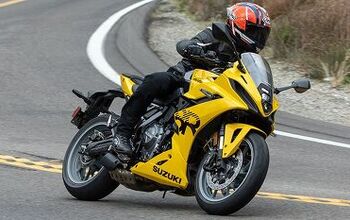
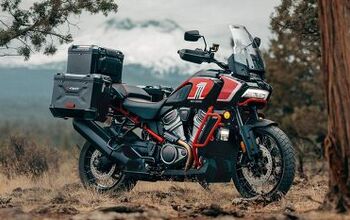



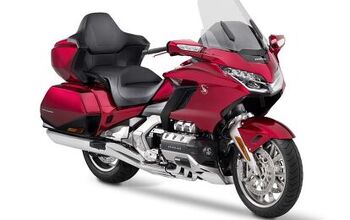
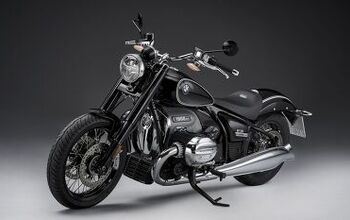
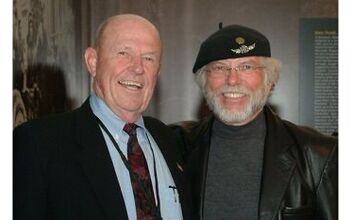
Comments
Join the conversation
I grew up in Eastern N.E. And it is a wonderful place, though I live in FL, now. The only thing to watch for while riding is the deer. Otherwise, it is an amazing place to ride. If you are in the area I suggest visiting Ponca State Park, the largest in NE and kayaking or tubing down the Niabrara river in Valentine.
Thank you so much for the great article showcasing the beautiful "Nebraska Outback!"